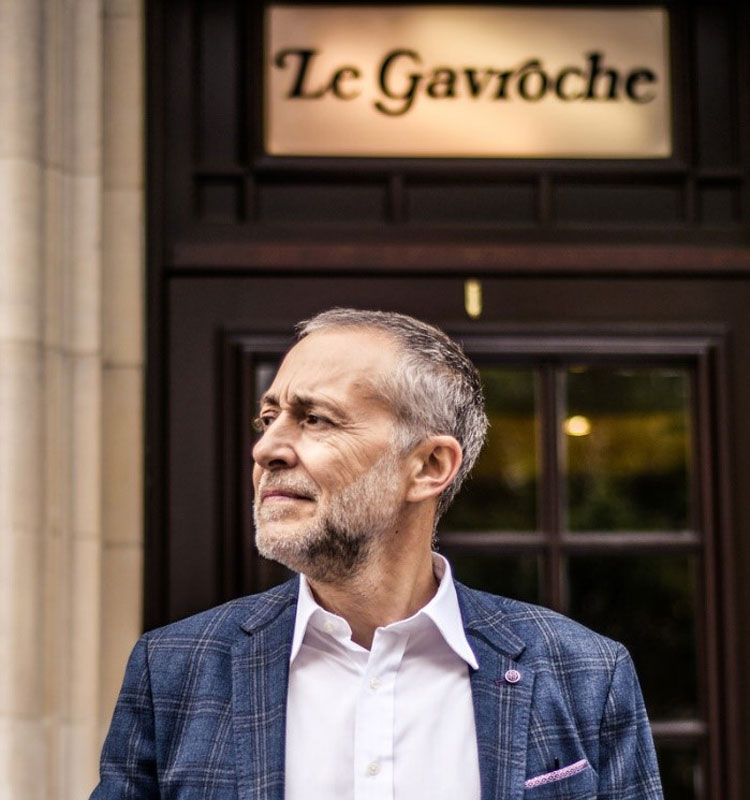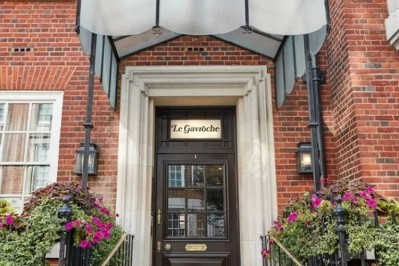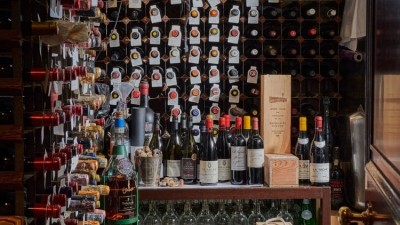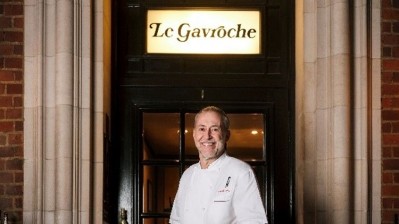“It’s more than business, it’s a life. And I don’t want to sell a piece of my life”: Michel Roux Jr on closing Le Gavroche
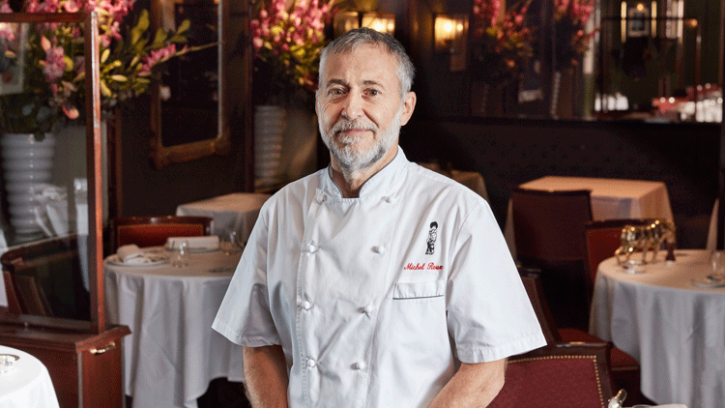
Roux announced on Friday (18 August) that Le Gavroche would close in January when its current lease expires but says that the lease coming to an end wasn’t the only reason behind the decision.
“I can’t put it down to one lightbulb moment,” he says. “I suppose it felt like the right thing to do at this time.”
The chef had had discussions with the landlord about the renewal of the current lease as early as before the pandemic and says that they were “favourable” but ultimately didn’t reach a conclusion.
“Like all discussions with landlords there are moments when you disagree but that’s normal. I’m not saying we couldn’t agree because we almost did. And then the pandemic started and that changed things and changed my perception of life as well and made me think about the future.”
“I very nearly gave up during the pandemic because it was brutal, and if it’s brutal for me as a fully established and profitable restaurant it was even more brutal for other small independent restaurants.”
Challenges of being a restaurateur
Writing on Instagram when he announced the news, Roux said the decision to close Le Gavroche would enable him to focus on his family as well as his other business ventures that include heading up the F&B operations at The Langham in London and consulting for Compass Group and catering at major sporting events such as the Wimbledon Championships. He will also continue to work with the ICMI Hotel Group operating the Roux restaurants in Scotland that include Seasgair by Michel Roux Jr at Inverlochy Castle and a restaurant at Crossbasket Castle in Glasgow.
“Undeniably it is getting more and more difficult
to run a business in hospitality. We might be in
Mayfair but we’re still a 68-seat
restaurant and it’s not a powerhouse"
He describes the tough challenges of running a restaurant in the current climate and says that despite Le Gavroche’s history and two-star status it is not immune to them. “Undeniably it is getting more and more difficult to run a business in hospitality. Le Gavroche is still a small independent, family-run business. We might be in Mayfair but we’re still a 68-seat restaurant and it’s not a powerhouse, so we are fortunate that we have a huge following worldwide.
“If there’s a problem with food or energy costing us more, I can afford to put a fiver or a tenner on the bill because people dining at Le Gavroche are not going to baulk at that, but it is incredibly difficult for new businesses and small independents because they are being crushed. I feel for anybody in the hospitality business starting out.”
Not the end of fine dining
The announced closure of Le Gavroche has caused some commentators to question the sustainability of fine dining restaurants, but Roux insists that it is a part of the hospitality sector that will endure. “I don’t think it’s the end of fine dining,” he says. “People will always want to go and feel pampered and get dressed up. Everyone has a birthday or anniversary to celebrate.
"I wanted to make sure every one of my team could look
me in the eye and I could give them a hug
and that we could go through this process together"
"Let’s not forget there are some very wealthy people who are flying in from all over the world to come to London and they want to spend their money, so we should have places where they can – it’s good for our economy. There is still a place for it.”
That said, Le Gavroche’s position as being ‘the last bastion in London of classically rich French haute cuisine’ means that its closure might spell an end for the old school style of French cooking that it championed. “We might see more reimagined fine dining,” Roux adds. “Le Gavroche had a particular style based firmly on French classics and more emphasis on taste than artistry on the plate, that’s my style. Maybe there will be less of that style in the future, which would be a bit of a shame.”
Looking after his staff
Announcing the closure of the restaurant four months ahead of time will undeniably bolster Le Gavroche’s reservation book as people seek to say their last goodbyes, but it was the need to give staff enough time to plan for the future that was the motivation behind the early announcement, insists Roux.
“I wanted to give all of my team enough time to be able to gather their thoughts and to do this in a grown-up way – not to keep trading then send them all a text or an email on Sunday saying ‘don’t bother coming in tomorrow’. I wanted to make sure each and every one of them could look me in the eye and I could give them a hug and that we could go through this process together. If I can help them get another job, I will, and get them the best job possible.”
As soon as the news did break Roux says a lot of his staff came to him saying they had been approached by other restaurants for jobs. “It’s mental; it’s dog eat dog in the industry at the moment. But I have reassured my team that there is going to be a nice financial redundancy package for everyone. Le Gavroche is financially stable now and we have got enough to make sure everyone is well looked after. Some will be able join other Roux ventures; there’s the Langham and I’m still running restaurants in Scotland.”
The legacy lives on
It is hard to overstate the impact Le Gavroche has had on the capital’s - and the UK’s - dining scene since it was first opened in 1967 by Albert and Michel Roux. The roster of chefs who have worked there is impressive, and includes names such as Gordon Ramsay, Marco Pierre White, Marcus Wareing, Pierre Koffman, Monica Galetti, Jun Tanaka, Stephen Terry, Rowley Leigh, and Paul Rankin. In 1984 the Roux brothers went on to establish culinary competition The Roux Scholarship which continues to recognise top chef talent in the industry to this day.
“Hopefully the person who nicked [the frog] will
have a bit of remorse now and bring it back.
But it’s probably quadrupled in value”
Roux says the restaurant will host some charitable events between now and January and he will also be contacting the colleges that help with The Roux Scholarship to give young chefs and front of house students the chance to experience the restaurant before it closes. He also intends to auction off some of Le Gavroche’s effects, including its sculptures, crockery, cutlery and artwork, at a number of intimate open days.
The Le Gavroche name will also endure, with Roux saying that it will continue to be a familiar presence in pop-ups and other venues. “Le Gavroche will continue, its legacy will continue,” he says. “No way would I sell the name and that’s why I wouldn’t sell the business either. It’s personal. It’s more than business, it’s a life. And I don’t want to sell a piece of my life.”
And what of the fate of the missing frog that was taken during a tribute night to Roux’s late father Albert? Roux is typically phlegmatic about this. “Hopefully the person who nicked it will have a bit of remorse now and bring it back. But it’s probably quadrupled in value.”
